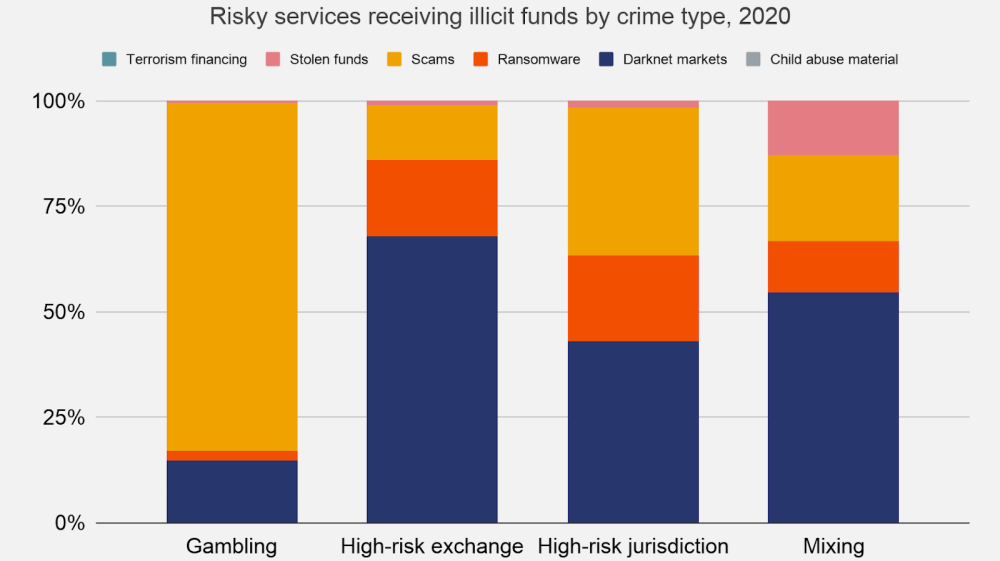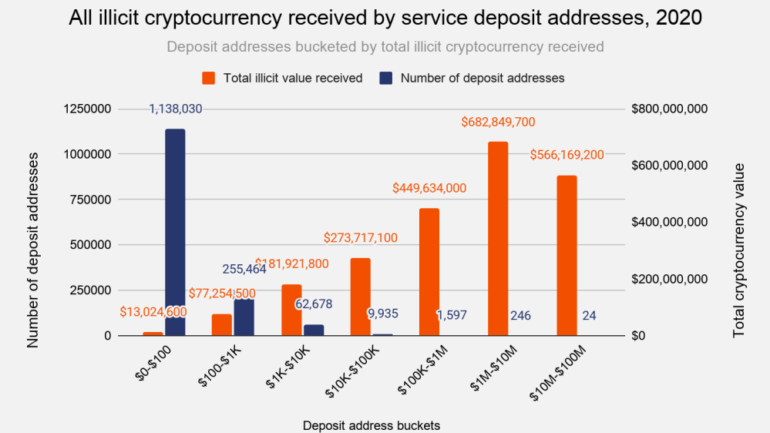Criminals who keep their funds in cryptocurrency tend to launder funds through a small cluster of online services, blockchain investigations firm Chainalysis said in a report last week.
This includes services like high-risk (low-reputation) crypto-exchange portals, online gambling platforms, cryptocurrency mixing services, and financial services that support cryptocurrency operations headquartered in high-risk jurisdictions.
Criminal activity studied in this report included cryptocurrency addresses linked to online scams, ransomware attacks, terrorist funding, hacks, transactions linked to child abuse materials, and funds linked to payments made to dark web marketplaces offering illegal services like drugs, weapons, and stolen data.
But while you’d expect that the money laundering resulting from such a broad spectrum of illegal activity to have taken place across a large number of services, Chainalysis reports that just a small group of 270 blockchain addresses have laundered around 55% of cryptocurrency associated with criminal activity.
Furthermore, expanding this group further, Chainalysis says that 1,867 addresses received 75% of all criminally-linked cryptocurrency funds in 2020, a sum estimated at around $1.7 billion.


“This level of concentration is greater than in 2019,” Chainalysis researchers said in a report published last week. “In particular, we see a much greater share of illicit cryptocurrency going to addresses taking in between $1 million and $100 million worth of cryptocurrency per year.”
“We believe the growing concentration of deposit addresses receiving illicit cryptocurrency reflects cybercriminals’ increasing reliance on a small group of OTC (over-the-counter) brokers and other nested services specializing in money laundering.”
Compared to three years ago, when criminal groups used a wider array of services, Chainalysis says this bottleneck in money laundering operations is good news.
The company believes that the cryptocurrency-related money laundering field is now in a vulnerable position where a few well-orchestrated law enforcement actions against a few cryptocurrency operators could cripple the movement of illicit funds of many criminal groups at the same time.
Furthermore, additional analysis also revealed that many of the services that play a crucial role in money laundering operations are also second-tier services hosted at larger legitimate operators.
In this case, a law enforcement action wouldn’t even be necessary, as convincing a larger company to enforce its anti-money-laundering policies would lead to the shutdown of many of today’s cryptocurrency money laundering hotspots.



